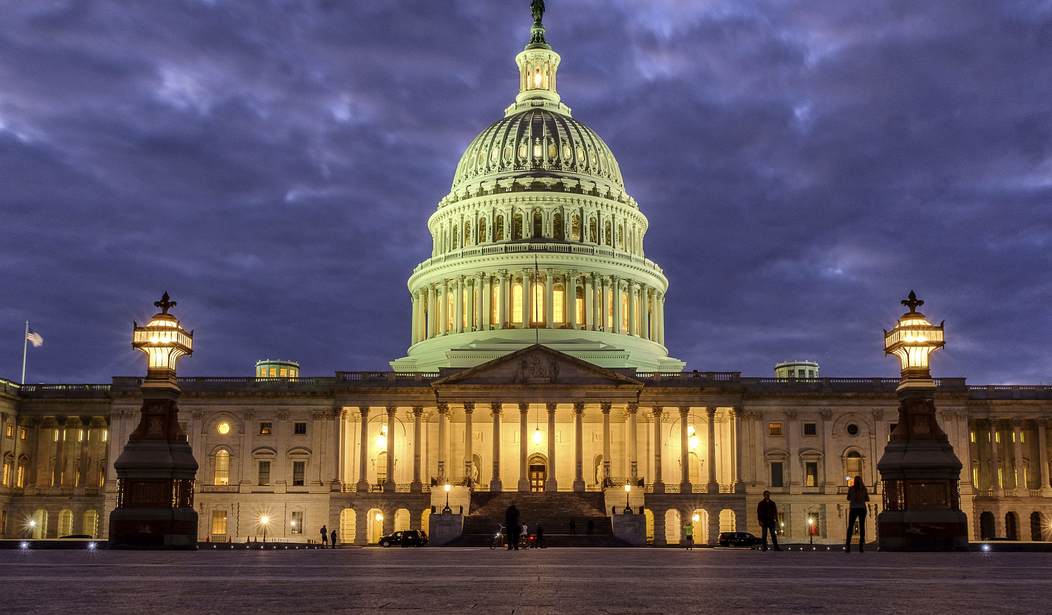WASHINGTON - Voters go to the polls next month to send members of Congress their report card about the way our lawmakers are running the country. And it’s not going to be a pretty picture.
In many cases our representatives and senators are going to be given failing grades for mishandling the government’s finances, for constantly bickering among themselves, taking too much time off (like all of August), and flunking budget-cutting.
The list is long and frightening. The White House said this week that the government ran up a budget deficit of nearly $780 billion in the past fiscal year, which ended September 30.
In the 1980s, I was asked by Reader’s Digest to write a series of articles, including one that named the ten most wasteful federal programs in Washington, and another that was titled “How Congress Creates a Deficit.”
At that time, the 1986 federal budget deficit was a tame $221 billion, “the worst in U.S. history.” And President Reagan signed a budget bill — a record $576 billion to keep the government functioning, but complained it contained “enough waste to run several small countries.”
Nowadays, the deficit is expected to get worse, much worse, climbing to nearly $1 trillion next year, and soaring far beyond that in 2020, according to the Congressional Budget Office.
A nation saddled with that much debt is in trouble. The Congress patted itself on the back this year for passing a budget, raising spending, but not looking for the many places in government where it could cut spending among hundreds of wasteful and needless agencies, bureaus, boards, offices, departments that cry out for the budget-cutting axe.
Recommended
I have written several books over the decades that dug into wasteful, duplicative, unnecessary federal spending programs. Most of them are still there and their elimination would save taxpayers hundreds of billions of dollars. In Fat City — How Washington Wastes Your Taxes, I began the book with this graf:
“Our federal government has become a bloated, extravagant, paternalistic, remote, cluttered, disorganized, inefficient, frivolous, duplicative archaic wasteland.”
Start with corporate welfare like the Export-Import Bank. Its direct loans subsidize the export sales of major blue chip corporations, including Boeing, McDonnell Douglas and Lockheed, among others.
We’ve spent billions of dollars subsidizing Amtrak since 1971, and its costs have climbed. Privatize it.
There is still a long list of obsolete military bases that the Pentagon and Congress want to close down, saving taxpayers millions of dollars.
Mergers and acquisitions are a staple in the business world. They can be a way to save money in government, too. Combine the Commerce and the Labor Departments to reduce its costs and improve its efficiency.
Democrats wrongly blame the rising debt on President Trump’s tax cuts. But cutting tax rates has injected a new spurt of growth into a lackluster economy that was barely crawling along at a 2 percent growth rate during President Obama’s two terms in office.
Trump’s personal and business tax cuts have propelled the nation’s annual growth rate by more than 4 percent, boosting capital investment, new business expansion, new job creation, increased incomes, and higher federal tax revenues.
He has been good on the pro-growth arguments for tax cuts, but less so on the wasteful, needless bureaucracies that populate our government and gobble up our taxes.
“Why do these programs survive despite overwhelming evidence of their abuse, waste and ineffectiveness? One reason is the powerful committee members who jealously protect the sacred cows of interest groups that fall within their domain,” I wrote in one Digest article.
Lawmakers listen only to arguments of the lobbyists and other special interest groups to keep these programs funded, not the people whose incomes are taxed to fund them.
The late Wisconsin Sen. William Proxmire, the last of the Senate’s penny-pinchers, once estimated that the ratio of those who testify each year on behalf of more spending versus less is about a thousand to one.
Isn’t it time that your voice was heard, too?

























Join the conversation as a VIP Member